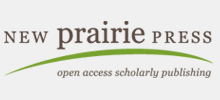Keywords
social work, financial planning, financial education, household finance
Abstract
In the United States today, more than 56% of individuals are in debt (Foster,Meijer, Schuh, & Zabek, 2011). Debt literacy may be defined as the ability to correctly assess debt contracts andcompound interest when making financial decisions about loans, credit cards,interest rates and fees. Often, low-income individuals are vulnerable toexperiencing debt and social workers are uniquely placed to assist them. However, little is known about the debtliteracy levels of Master of Social Work (MSW) students who are about to becomesocial workers. This study attempts tofill this gap. Data were collected from 48MSW students, and analyzed using Chi-Square goodness-of-fit tests, Chi-Square testsof independence, and Fishers’ Exact Test where appropriate. Resultsindicate that social work studentsscored low on all debt literacy measures, but were statistically similar to thegeneral population and to service providers in the asset building field. Inaddition, students with higher self-assessed financial knowledge, or who comefrom households with higher incomes or network, tend to have higher debtliteracy levels. Implications for social work practice and education are discussed.
Creative Commons License

This work is licensed under a Creative Commons Attribution-Noncommercial 4.0 License
Recommended Citation
Loke, V., & Hageman, S. A. (2013). Debt Literacy and Social Work. Journal of Financial Therapy, 4 (1) 3. https://doi.org/10.4148/jft.v4i1.1795

